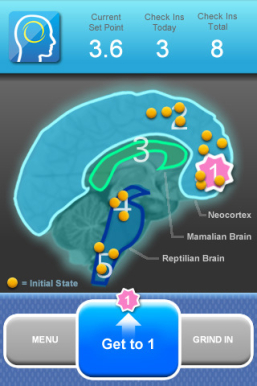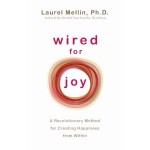Does Emotional Intelligence Peak in Your 60s?
 Emotional intelligence is our ability to spot, manage and generate emotions in ourselves and others. It appears to correlate better to life success than IQ. Emotional intelligence is not taught in school, it is learned (by some) through life experience. So it should be no surprise that it should improve as we age.
Emotional intelligence is our ability to spot, manage and generate emotions in ourselves and others. It appears to correlate better to life success than IQ. Emotional intelligence is not taught in school, it is learned (by some) through life experience. So it should be no surprise that it should improve as we age.
According to recent research from the University of California at Berkley, some aspects of emotional intelligence appear to peak in our 60s. These include:
- Effective use of positive reappraisal (seeing the bright side of things) to reinterpret negative situations in a positive way.
- Sensitivity to sadness or the ability to empathize with those feeling sad.
These are important findings as they help to further dispel the myth of universal cognitive decline with age. Understanding which aspects of cognitive performance naturally improve as we age should shape our approach to brain fitness.
Interested to hear from readers that have noticed improvements in Emotional Intelligence in older adults.
Categories: IQ and EQ, Lifestyle, Manage Emotions, Older Adult Tags: emotion, EQ
Training for a High-Performing Emotional Brain
 Emotions play a key and often dominate role in our brain function and cognitive performance. We create emotions anytime we appraise or make judgments on people, events, ideas or other things. Our ability to spot, understand and manage emotions in ourselves and others correlates more strongly to life success than IQ. So-called emotional intelligence is a cornerstone for high performance learning, decision-making, creativity, collaboration and other mental and social processes. So I am also on the lookout for new science-based techniques for training my emotional brain.
Emotions play a key and often dominate role in our brain function and cognitive performance. We create emotions anytime we appraise or make judgments on people, events, ideas or other things. Our ability to spot, understand and manage emotions in ourselves and others correlates more strongly to life success than IQ. So-called emotional intelligence is a cornerstone for high performance learning, decision-making, creativity, collaboration and other mental and social processes. So I am also on the lookout for new science-based techniques for training my emotional brain.
For example, take the work on Emotional Brain Training or EBT. It provides a simple way to assess which of five core brain states you are in and then suggests a tool for achieving self-regulation . The five brain states and associated tools are related to your level of stress and include:
- Balanced/reward (joy) state use the Sanctuary tool
- Balanced state use the Feelings check tool
- Verge of stress (mixed) state use the Emotional Housecleaning tool
- Stressed (unbalanced) state use the Cycle tool
- Full blown stress (underwhelmed) state use the Damage control tool
To get started right away you can download the Emotional Brain Training iPhone app (shown above) or find the equivalent in the Droid market.
 If you want to understand more of the theory behind how it works check out the new book, Wired for Joy. Or consider some of the training and coaching offerings from the Institute for Health Solutions.
If you want to understand more of the theory behind how it works check out the new book, Wired for Joy. Or consider some of the training and coaching offerings from the Institute for Health Solutions.
I am just learning to use EBT and am interested to hear from readers that have some experience with one or more of the five tools.
Categories: IQ and EQ, Lifestyle, Manage Emotions, Software, Training Tags: emotion, EQ, smart phone
Measure Your EQ & Build Emotional Intelligence
Over the last two decades we have done the science to know that being smart about emotions is the key to life success. A common sense conclusion for many but with the science we now have the tools for systematically getting better at it.
 Some argued that your emotional quotient (EQ) is more important than your intelligence quotient (IQ) when it come to achieving success. Emotional smarts over book smarts. This is true because emotions play a critical role in learning, problem solving, decision making, creativity, collaborating and many other brain-heavy activities. So it should be no surprise that being smart about emotions – being able to spot them, harness them to positive outcomes and even generate them on demand – is a cornerstone for success.
Some argued that your emotional quotient (EQ) is more important than your intelligence quotient (IQ) when it come to achieving success. Emotional smarts over book smarts. This is true because emotions play a critical role in learning, problem solving, decision making, creativity, collaborating and many other brain-heavy activities. So it should be no surprise that being smart about emotions – being able to spot them, harness them to positive outcomes and even generate them on demand – is a cornerstone for success.
Focusing on EQ and strengthening emotional intelligence is key to developing YourNextBrain! It will be a frequent topic on this blog. To get started check out the post from Psychology Today on Emotional Intelligence. They provide a crisp definition:
“Emotional intelligence is the ability to identify and manage your own emotions and the emotions of others. It is generally said to include three skills:
 emotional awareness, including the ability to identify your own emotions and those of others;
emotional awareness, including the ability to identify your own emotions and those of others;- the ability to harness emotions and apply them to tasks like thinking and problems solving;
- the ability to manage emotions, including the ability to regulate your own emotions, and the ability to cheer up or calm down another person.”
As well as links to many great overview articles.
If you are considering building up your emotional intelligence I suggest you start by measuring it:
- Quick Measure (17 questions and 10 minutes)
- In Depth Measure (106 questions and 30 minutes)
Please share what you learn about your EQ and experiences you have had in improving it.
Categories: IQ and EQ, Manage Emotions Tags: emotion, EQ
